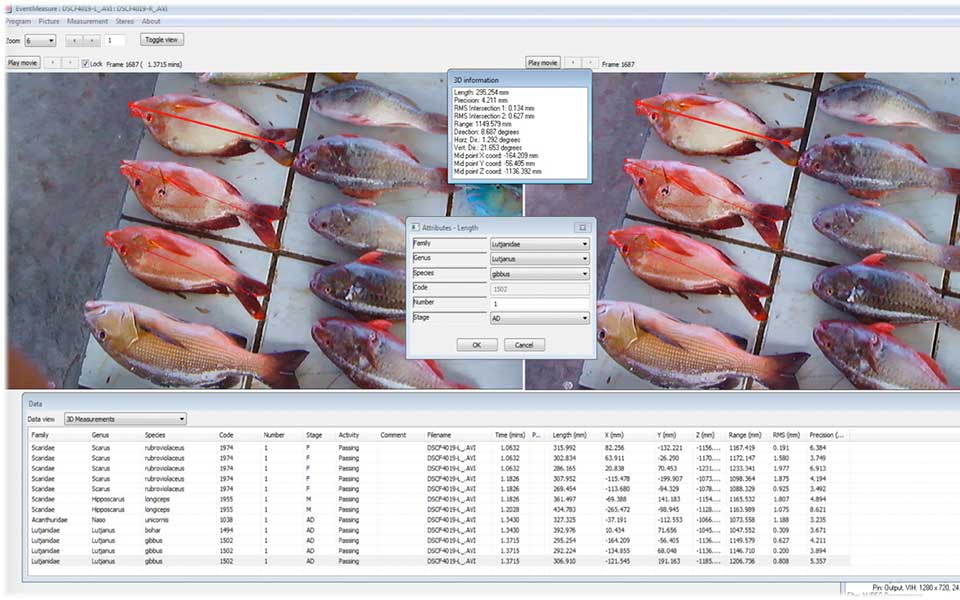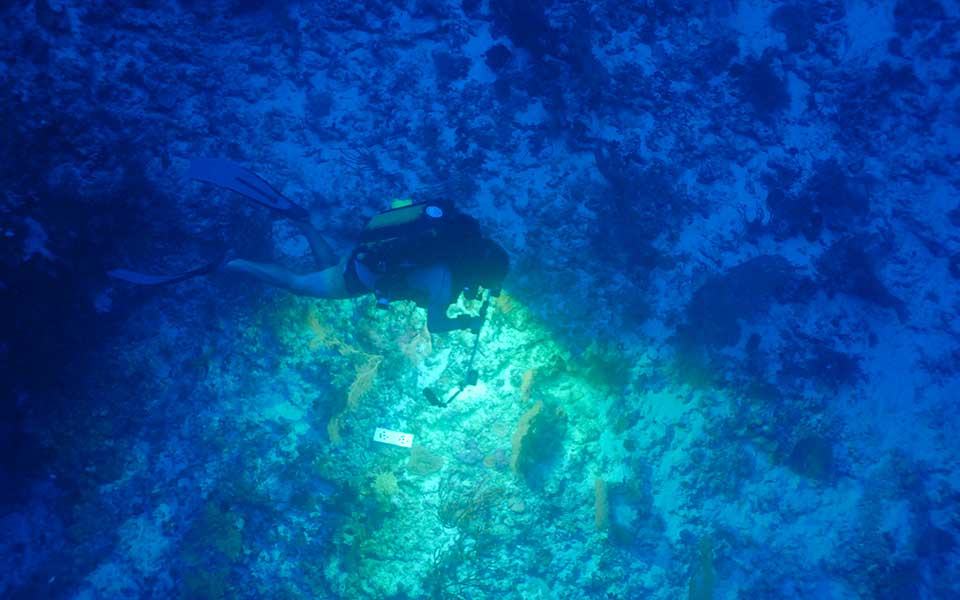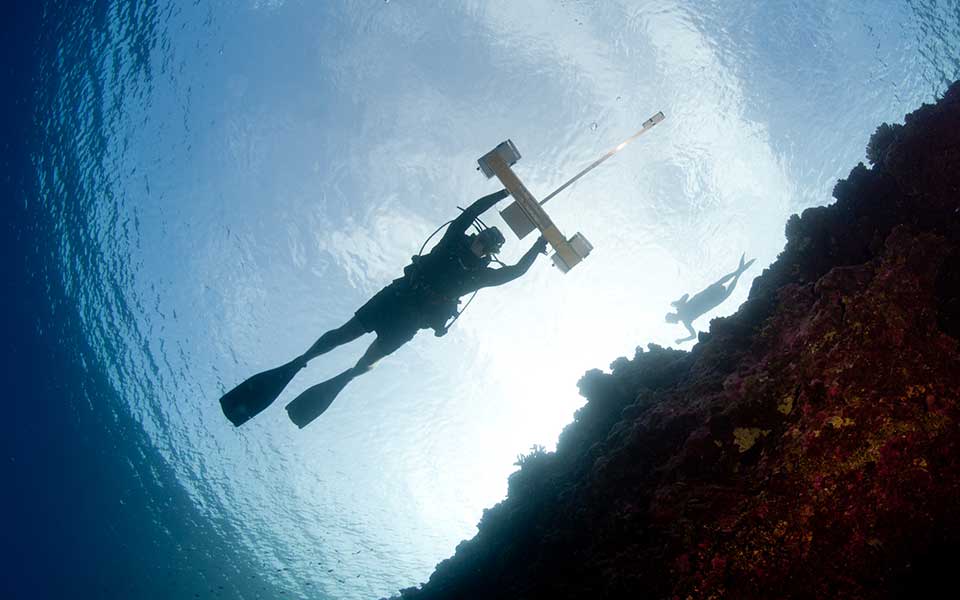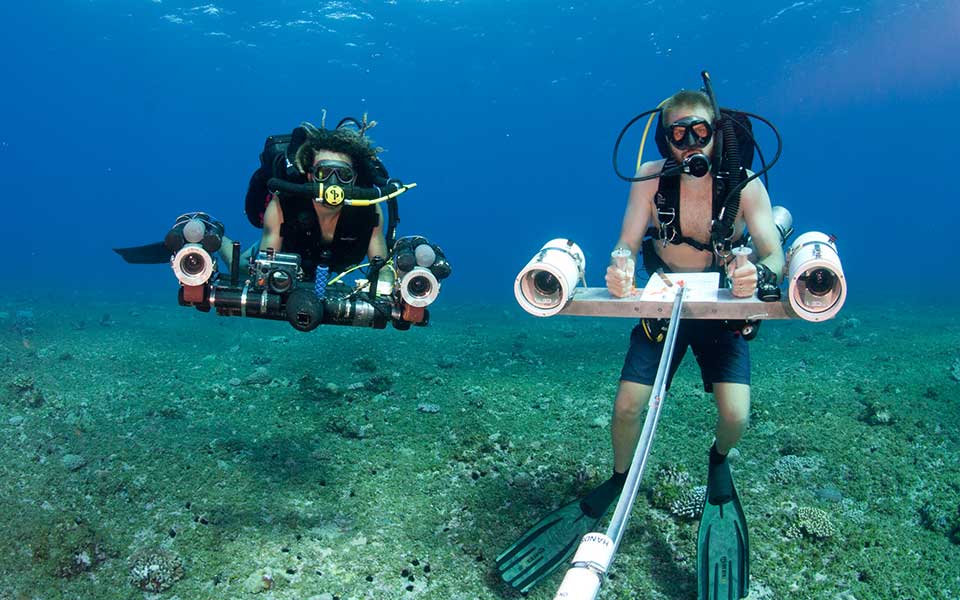Quantifying fish abundance and size
Stereo-video systems are mainly used in two different applications for quantifying the abundance and size of fish. The diver-operated stereo-video system (stereo-DOV) is used by divers swimming transects so that fish counts can be done more quickly and the survey area can be standardised. The other common use is with a baited remote underwater video station (stereo-BRUV) which is deployed from a boat and can be used to survey deep waters and also useful for attracting predatory fish that can be shy of divers such as sharks.










